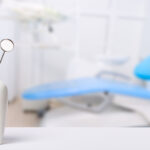Why do we brush our teeth? Essentially to keep our teeth clean and get rid of bad breath. More than that, brushing our teeth helps to maintain a delicate balance in our mouths. At any given time, there are up to 700 strains of bacteria living among our teeth, gums, tongue, and the insides of our cheeks. Some of these bacteria help with digestion. Others eat away at food debris, but some directly damage oral tissues. Brushing our teeth reduces the number of bacteria and allows time for the enamel to repair microdamage.
A Closer Look at Oral Bacteria
Our teeth have a natural defense against damaging bacteria. Tooth enamel is the transparent, thin outer covering of a tooth made mostly of calcium and phosphate. It’s harder than bone, giving our teeth the ability to crunch, bite, and chew without breaking. Certain bacteria in our mouths create lactic acid. Along with acidic foods and drinks, the lactic acid breaks down tooth enamel, resulting in tiny lesions. This process is called demineralization.
As the process continues, those lesions eventually become holes in your tooth enamel called cavities or caries. These holes lead directly to the soft dentin within a tooth. Left unchecked, the bacteria further damages the dentin, hollowing out the tooth. At some point a hollowed-out tooth collapses from the stress of chewing – like a roof with too much snow on it. Once that happens, significant repair or even removal is necessary. Preventing this process is critical to keeping our teeth for a lifetime.
Hindering the Tooth Decay Process
To avoid this damage, our bodies fight against demineralization. Saliva contains calcium and phosphate to repair the damage. When bacteria and lactic acid create lesions, components in our saliva rebuild the crystalline structure of the weakened enamel. This process is called remineralization. Areas of enamel rebuilt by this process with the help of fluoride are often stronger than unaltered enamel.
With the typical American diet, the components in saliva are often outmatched. We introduce more acids and sugary foods than our oral defense systems can handle. Thankfully, toothbrushing removes plaque, food debris, bacteria, and other offenders before they continue their damaging assault. Besides catalyzing remineralization, fluoride also directly weakens oral bacteria. That’s why it’s often added to toothpastes, mouthwashes, and even drinking water. Studies show that brushing for two minutes twice a day is the right amount to keep your oral health maintained. Flossing dislodges food debris and other particles that toothbrush bristles cannot, and a water flosser works in the same fashion.
Semiannual checkups with your Yuba City dentist are especially important. We clean your teeth at a level that no toothbrush can match. We also inspect your teeth and gums to take note of any developing issues. In fact, regular visits are a great way to make sure you keep the balance in your oral health. To find out more, or to schedule your next appointment, please contact our office by phone or schedule an appointment here on our website.



0 Comments